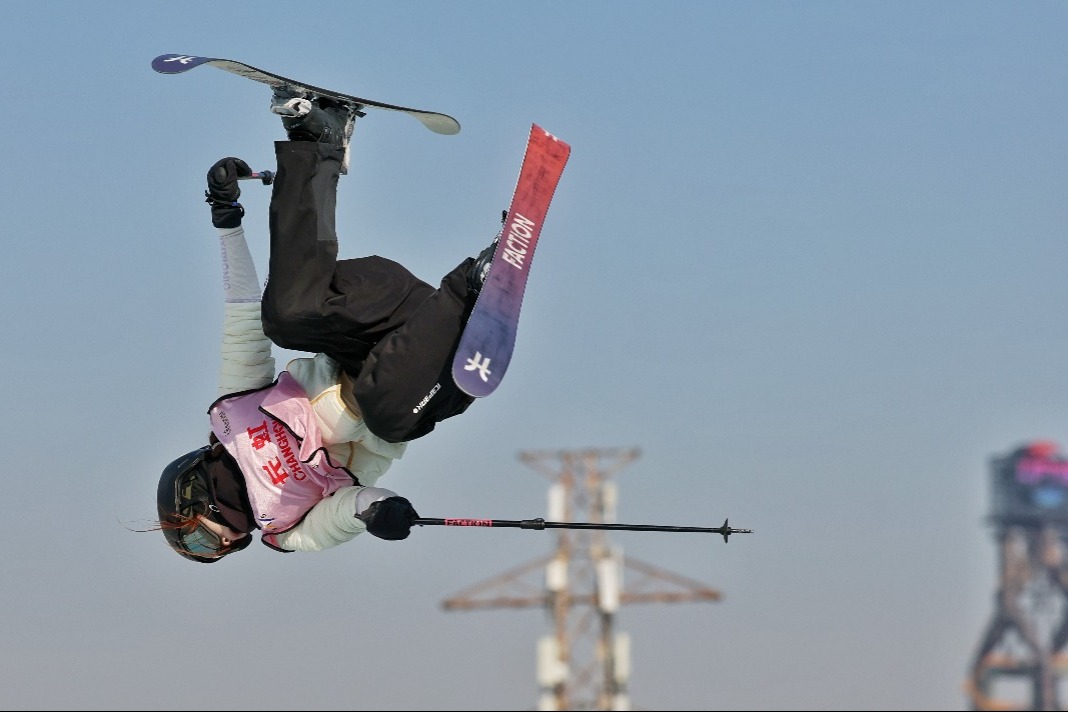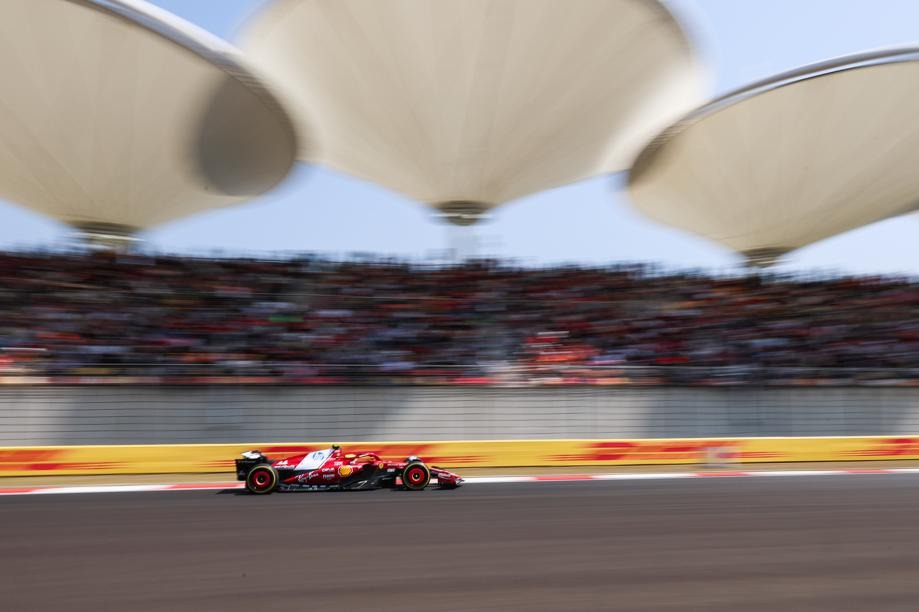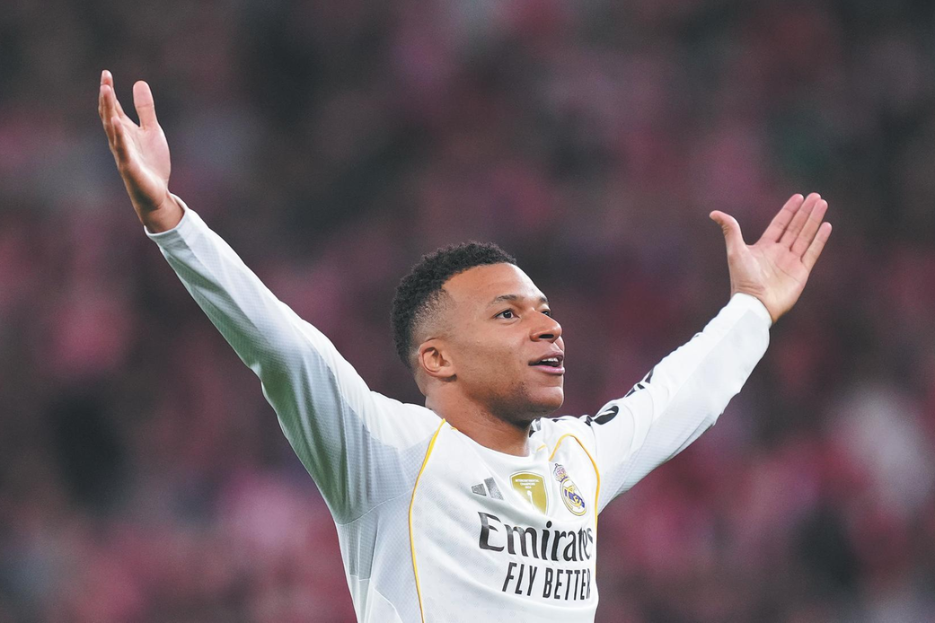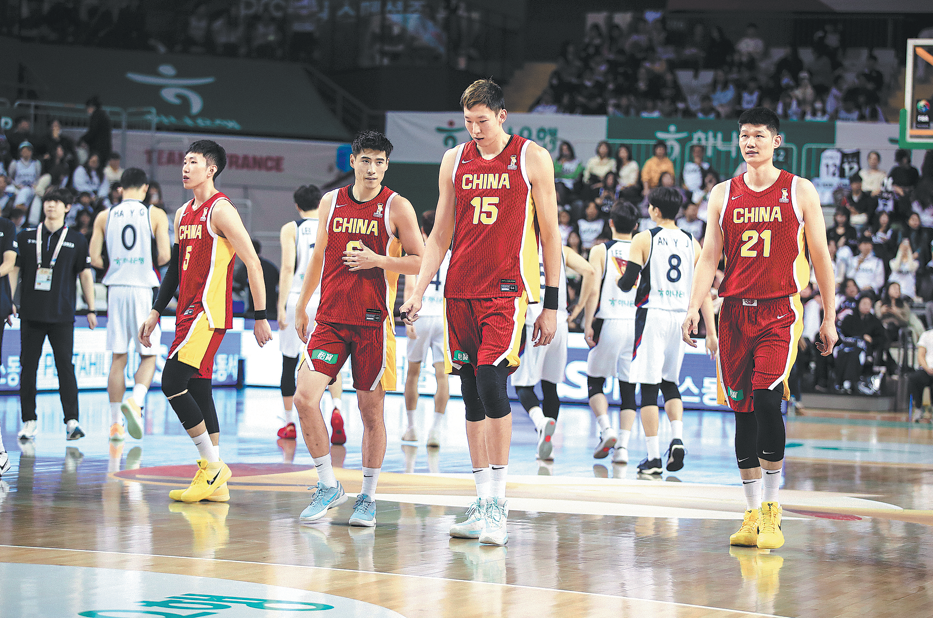Second chances are the first priority for racing champion

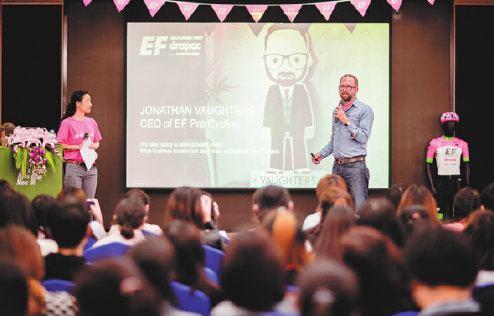
The team is renowned for having one of the strictest anti-doping programs in professional sports, and played a pivotal role in helping the World Anti-Doping Agency create the template for the biological passports for professional athletes that can be used to identify violators.
The clearest vindication of the company's anti-doping policy came last year when its Colombian star Rigoberto Uran finished second overall at the Tour de France, but the celebration was brief.
Months later, Vaughters' team, then called Cannondale-Drapac, teetered on the verge of insolvency after a sponsorship deal for the 2018 season failed to materialize.
In a bid to rescue the outfit, Vaughters launched a crowdfunding campaign that managed to raise $539,040.
The stunt also caught the attention of EF Education First, which was so moved by the outpouring of support that it threw the team a financial lifeline.
This is not the first time the education company has made a foray into sports. EF has been the language training and education sponsor at six Olympic Games.
"As with anything EF does, the ultimate decision wasn't about money, it was about people," Philip Hult, co-chairman of EF Education First, wrote in a blog post.
"We read what this team's fans were saying, and saw the passion and love that drove them. That's when we knew that this was a team we wanted to be a part of."
EF Education First is more than just a sponsor. Its help prevented Vaughters from descending to what he said would've been the rock bottom in his cycling career and gave his team a second chance.
Second chances are part of Vaughters' personal philosophy, too. His team did not hesitate to hire former dopers such as Christian Vande Velde, Dave Zabriskie and Tom Danielson.
Vaughters is adamant that doping is no longer as prevalent as it was during the 1990s, and while he doesn't deny it is still possible for riders to cheat and get away with it, he believes the "biggest races in the world right now are clean".
The nature of Vaughters' new title sponsor could be said to perfectly mirror his faith that the young cyclists under his charge are transparent and honest. After all, education is a people business, and schools are where kids learn about the virtue of honesty and fair play.
"I'm a racer at heart, but watching someone I've trained win probably makes me feel better than when I was the one winning because I know what went into that victory. I know it was clean," he said.
Vaughters believes the dark shadow of the Armstrong saga still hangs over the sport.
The American legend, who won the Tour de France every year from 1999 to 2005, admitted to blood doping in an interview with Oprah Winfrey in 2013.
"I think cycling is still a few years away from being rid of the doping stigma. I think the best path forward to achieving that is being really transparent about things," Vaughters said.
"The athletes are happier under a system where they are not pressured to dope, fans enjoy the races more because they have become a little less predictable, and people working on the teams no longer have to keep secrets.
"We don't have to be protectionist anymore. We can all be open. Life is easier and nicer this way."
Vaughters knows this all too well. In a 2012 interview with the New York Times, he admitted to doping during his time with the US Postal Service team-an indiscretion he deeply regrets.
In retrospect, Vaughters has no qualms about addressing the elephant in the room.
He also insists his admission and the team's anti-doping stance did not stem from a desire to seek redemption for his indiscretions.
Again, this is about second chances-except this time around it's about not wanting the future generation of cyclists to need one.
"The main motivation behind me admitting to doping was the group of young athletes we had on the team, some of whom I had coached since they were 13 years old," said Vaughters.
"I felt I needed to protect the young riders coming into the sport. My thinking was that if their boss was being dishonest then maybe that would teach them to be dishonest as well.
"The most important thing about this team is our ethics.
"Winning comes second. Yes, winning is fun-but it is only when you win clean can you really be happy. Because then it's real, it's honest."
Most Popular
- Freeskier Liu eyes Olympic podium after two home World Cup medal finishes
- Torch relay for 2026 Milan-Cortina Winter Olympics starts in Rome
- Three players tied for the lead in Wanning Women's Golf Open
- Chinese snowboarding's collective progress makes a strong statement to the world
- Shanghai Esports Masters begins, showcasing future Asian Games title
- Beijing to update Olympic Center, focuses on urban renewal, tech
















